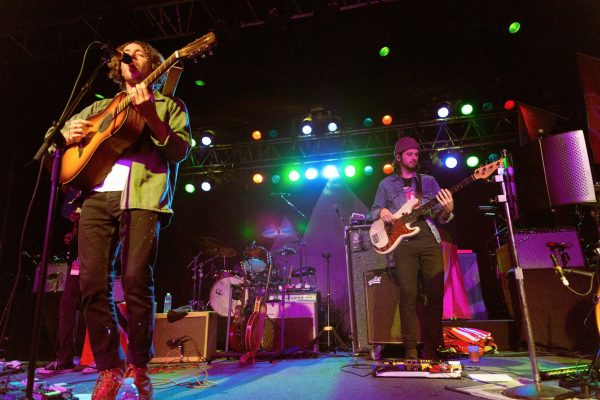Interview by Johnny Boddy, photos by Marina Choy
Danny and Max make up the creative body that is Lewis Del Mar. The two go beyond just great music, making songs with true sound and substance. Lewis Del Mar as a band name is an homage to both Danny’s father’s hometown on the Caribbean in Nicaragua and their current home in Rockaway Beach, NY. The two have been playing music together since middle school in D.C. where they came to know each other and their style of music. Coming off the release of their first album and a European tour, they began a fresh tour with headliners Young the Giant. I had the chance to sit down with them and pick their brains.
Danny – singer, songwriter, guitarist
Max – producer, drummer, sampling
I know you two have been rocking out since middle school days, I read you two are from the DC area – correct?
Danny: Yes.
And you moved out to New York?
Danny: Yes.
Max: Always good to get your facts straight nowadays.
Yeah, I wouldn’t want to publish any alternative facts. For the readers who have maybe never heard of you two before, could you give your name, your role in your band, Lewis Del Mar.
Danny: I am Danny, I am the guitarist, and singer, and one half of Lewis Del Mar.
Max: Perhaps the heart of the band.
Danny: Am I the heart?
Max: I dunno.
Danny: I feel like you are the heart and I am the head of the band.
Max: Oh I feel that.
Danny: Right?
Max: Yeah that’s probably pretty accurate. On that note; I am Max, I am the “heart of the band.” I play the drums and work on the production of the record.
Danny: We play pretty much everything on the album except for some of the bass stuff that Drew our bass player recorded.
You two have one album out, self-titled, and it is the first full length LP. It’s been a long way coming right? Tell me about the album.
Danny: It actually happened very quickly for us. We put out the EP in April of last year, and then we put out the album in October. It really didn’t take us that long to make.
Max: There was a lot of creative experimentation leading up to the release however, for sure.
Danny: Yeah that’s for sure.
Max: Moving out to New York, then settling in Rockaway… Rockaway really influenced the music. Also the influence of Latin America and our travels there. All things have led to the release.
Danny: We spent a long time making music and trying different things. “Throwing ourselves against the wall” so to speak. Yeah it sort of led down the road to this, but since we announced the project it has only been a year and a half… barely. We put out “Loud(y)” online January of last year.
Max: It is funny how the whole release was sort of stretched over a period of time. We are a new band; we are still getting ourselves settled in the music industry and all that.
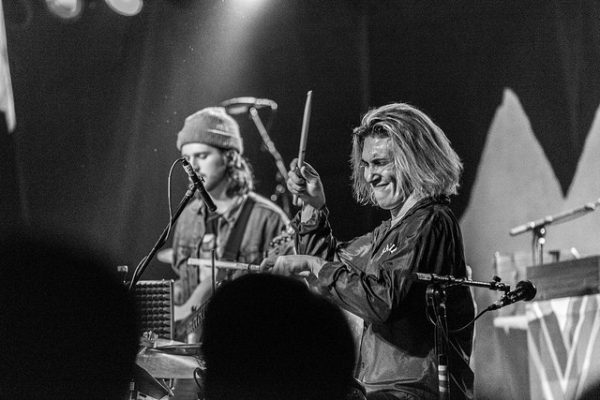
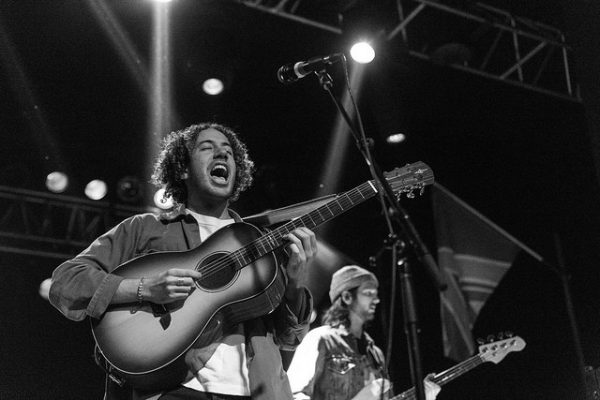
So I had heard “Loud(y)” on SoundCloud through HypeM… and when I traveled to SXSW I saw you play at the HypeM tent. Great show. What do you think of SoundCloud as a platform and the way “Loud(y)” took off?
Max: I think in some ways it is exactly how art should work. We didn’t have much of a platform, so we didn’t have a lot of people judging our music.
Danny: To me it is just very indicative of how a lot of things move these days. We intentionally surrounded the work with very little context. There were no photos of us involved, we kept the process very simple.
Highs and lows of touring?
Max: High is Portland, low is Boise. *Chuckles
Danny: I think the high is playing your own show, especially for us being a new band. There is something visceral about putting on a show for your own fans. That sounds simple, and it is, but that was a really pertinent moment for us as artists. Here you are, in a room full of people that actually paid to see your group. We were kids who worked in a DIY band for so long where there would be no one at the shows… Lows of touring would be the exceeding amount of down time.
Max: Yeah dude you would be surprised.
Danny: You go so many places just to wait before doing anything.
Max: When you sit in a van for seven hours a day you end up going every life decision you have ever made in your head far too many times.
As far as major influences, what does Fugazi – Repeater mean to you two?
Danny: A lot of things. Repeater was the first album we bonded over. On a larger note with Ian Macaye [frontman of Repeater], I read this really interesting interview with him where people asked “Why did you stop?” Especially as he did in his prime. He said “I’m not a maximalist. I don’t believe that for something to be successful it needs to reach its logical point of conclusion.” His success does not hinge upon how many people listen to Fugazi. It hinges upon whether he can accurately convey the message that he wants to convey. I think that is a really important sentiment. How you interpret it can be split in a bunch of different ways. However, knowing when to say stop, and step away, is a very interesting indicator of someone’s artistry.
Would you say that influences Lewis Del Mar?
Danny: I certainly think there is a punk ethos behind Max and I’s friendship and the band itself.
Max: That was our approach to recording. We had limitations but we told ourselves that this is the gear we have and this is the gear we are using; we have it for a reason. It’s gonna produce a sound that is true to us. I think that ties into the punk ethos; the most Lewis Del Mar thing we could do is record with the equipment we had.
Punk ethos is a good ethos.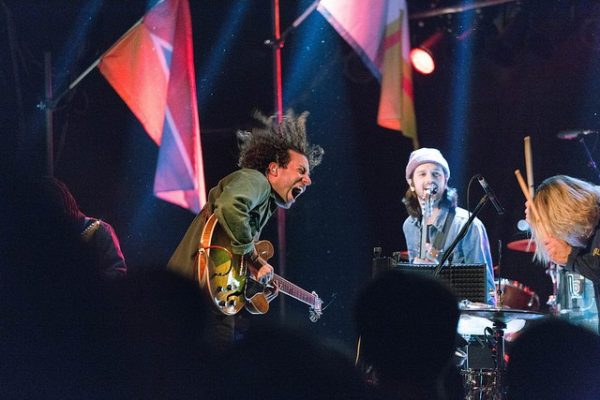
Danny: Yeah it is. I think that it is just a very grounded perspective. Very much making art for art’s sake.
You covered Rihanna’s – You Needed Me. Do you like Rihanna a lot then?
Danny: Totally. I didn’t fully like her new project.
Max: You didn’t like Anti??
Danny: I liked some of it… I think Rihanna as a pop artist has longevity. Which takes so much more than just consistently making good music. A lot of artists make great records that don’t maintain relevancy. When you look at Rihanna, she is competing against a shifting cultural landscape, so I think that there is something to be said about that. When she was first making music, it was a climate in which R&B wasn’t totally on the radio and now she’s making music in Trump’s America. There is lots of stuff that shifts over time. For someone to maintain relevancy is really impressive. Not many that can do it.
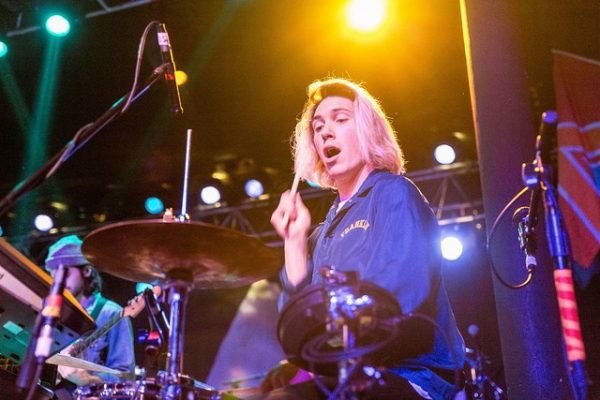 If you two had a DJ show at KDUP – what would you play?
If you two had a DJ show at KDUP – what would you play?
Danny: I like really quirky themes. Bands with self-titled albums, and self-titled songs.
Max: What bothers me more than anything is songs where the first lyric of the song is the title of the songs. You ever notice that? I hate that.
Danny: Random common threads are what makes art interesting.
Max: More and more when I listen to music I avoid cool playlists because you don’t really internalize any of the songs or the artists they are just part of a group. It becomes very forgetful. So it’s a good idea to focus on a random theme.
For Max, on “Malt Liquor”, I read that you had sampled a preacher outside your place in New York – correct?
Max: Yeah. [I got into sampling through] listening to artists like J Dilla and Madlib. A friend of mine who was a producer had showed me their stuff and I got really into it. I tried to re-create my own stuff similar to theirs and realized how much of production was sample based. When we moved to New York I brought that with me. So much of hip/hop at the time was old soul records being sampled. I made beats sampling soul records and showed them to Danny. He was like ‘Oh that is cool but it sounds like such and such.’ After a while it became: how can I sample, in a new way? Then I realized I had a microphone in my pocket–my iPhone.
Why the sample in “14 Faces“, “I haven’t seen the movie, only the trailer.”
Danny: It was a happy accident, put there as a placeholder. It stuck… it just felt right.
Max: There was something in that opening line, “Oh I didn’t really get that, from the movie!” To me, combined with the song, it reinforced the idea of the old self and the new self. Lessons you have learned, I imagined that reference to the movie as a metaphor to the past. Looking back and realizing that you had missed things suddenly in the moment.
What was the movie?
Max: Fifty Shades of Grey.
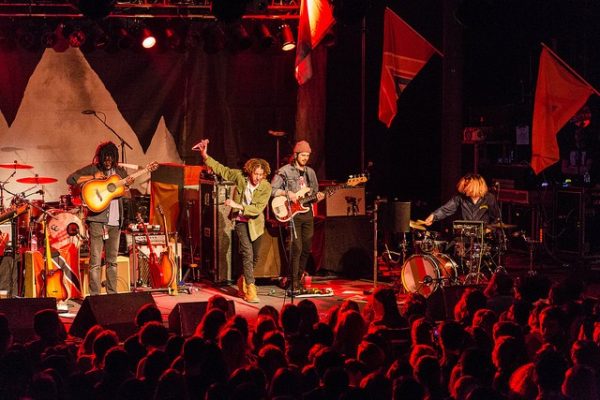
On the song “Puerto Cabezas, NI” – you two have talked about ties to South America, and have brought up the issue of identity. Danny I read that you had said,
“Finally going to Puerto Cabezas was lifting a blindfold. I stayed with family and met some of my parents’ first friends. In a predictable but poignant way it connected me to parts of my identity that I never fully understood. But, it was also strange: the sentiment of being 25, of believing you finally know yourself, and then suddenly discovering an entirely new dimension of your identity. It was an experience that felt both unique and universal in the same instant.”
First off that is really well put – second, could you elaborate on that?
Danny: Well my dad is from a town called Blue Fields in Nicaragua, which is to the south of Puerto Cabezas. A small town. Puerto Cabezas is actually known now by its indigenous name which is Bilwi. My mother was working as a nurse at a public health clinic; noble work. At that health clinic, my dad’s mom was the chef. The two connected there. Their love story is pretty incredible in how they moved from NI to the states. My father actually fought in the revolution in NI for a while. They had me when they were living in DC. I ended up going to school in a predominantly white neighborhood. I never felt like it exemplified my personality. It took a long time to understand why I didn’t feel comfortable there. My father suffers from mental illness… and I didn’t always hear the stories about them meeting, or my father’s past, until I was older. Perhaps because my mother thought I would have a handle on the situation better. I think anytime past twenty years old when have a new life experience it shakes you. You think you know who you are and sometimes you don’t.
So going back made something click?
Danny: I think it was actually moving to New York and being amongst diversity. Seeing that everything is a continuum and a very broad spectrum. Also, that I was able to more adequately express parts of my personality that I couldn’t before.
In the song, you sing, “My father never lost his mind” – what do you mean by that lyric?
Danny: I think it’s a sentiment that book ended the story. My father’s illness is where things started to unravel for my parents. In hindsight, it is a little bit of a cheap shot. Not to my dad. To be clear, he suffers from schizophrenia, but to boil that down to losing someone’s mind… I have a hard time when people get labeled as crazy. It’s an oversimplification of a much more complex situation. I am totally a byproduct of how mental illness can affect the pool of people around you. I don’t regret it at all, it was just a part of growing. It was more meant to be a ‘to be continued’ statement. My father is a very intelligent person actually and we talk often about it.
On twitter I saw the picture you had posted from the New York women’s march. You had captioned: “Son of an Immigrant. Raised by a single mother. Brothers support sisters.”
Danny: Yes.
How was the march?
Max: I thought it was great, a lot of support and a wide range of people there. Which was good to see. We saw people that had to be in their sixties. It’s cool for older people to be involved because when only the younger generation gets involved the march is belittled as just a kid’s thing. The adults add legitimacy. This was the first protest we had been involved in. Being more involved politically is something that will keep growing for us. I encourage all people, if they feel so inclined, to get out there.
Danny: It is a very empowering thing. The march was like a gathering and demonstration. It had a very supportive climate. What Max said is right, bringing people in that haven’t participated in events like this in the past is very healthy for our culture.
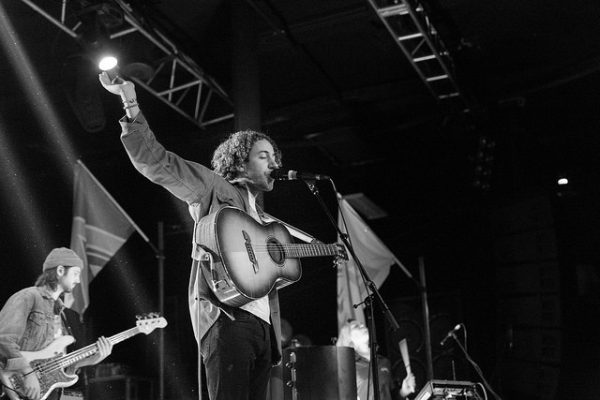
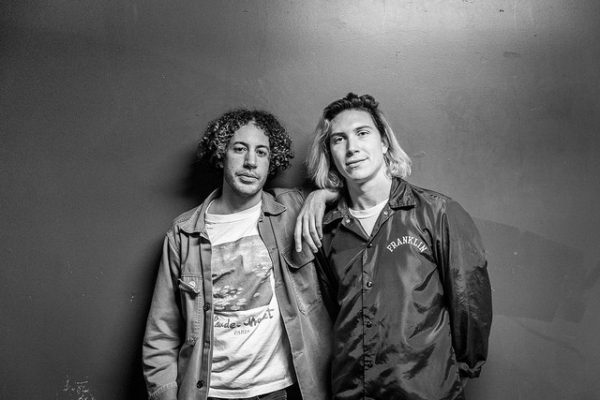
Do you think art should be political?
Max: I think the best art is social. Politics, when you boil it down, for instance everything we are discussing, it’s all socially intertwined. People talk about social politics but really all politics are about the interaction of people. The greatest art is reactionary. That’s different than protest songs. The greatest art is relevant and continues to be relevant over time.
Danny: Artists have to at least consider the political climate when you are creating your art. Whether you make a protest song or not, you should be aware that this is the environment it is being put into. I saw Lorde tweeted that she feels pop music is more important at a time like this as both healing and escape from the general violence and strife that’s going on. That’s a totally fair sentiment, or you make a song that references the politics at the time, but either way, to just make a song and say “Hey this is just a song!” does seem a little ignorant.
What’s the message to the youth?
Max: We are the youth!
Danny: Yeah we are the youth, are we that old?
Take that question as you may.
Max: Read more. That sounds silly but reading encompasses temporarily disconnecting, critical thinking, imagining… all aspects that are in the end very important to the human spirit.
Danny: Talk and open up to each other more. I read an article about a girl who had live streamed her suicide… and having lost friends to suicide myself… when people have issues inside and they don’t talk about them it’s never good. Open up more. Talk to someone and get beyond that hump because life get’s better.
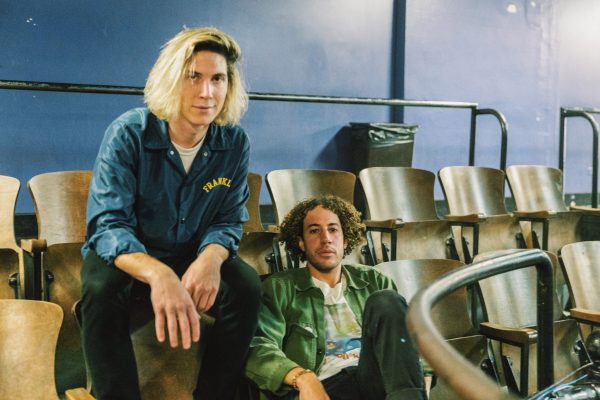
Edited for length and clarity.
